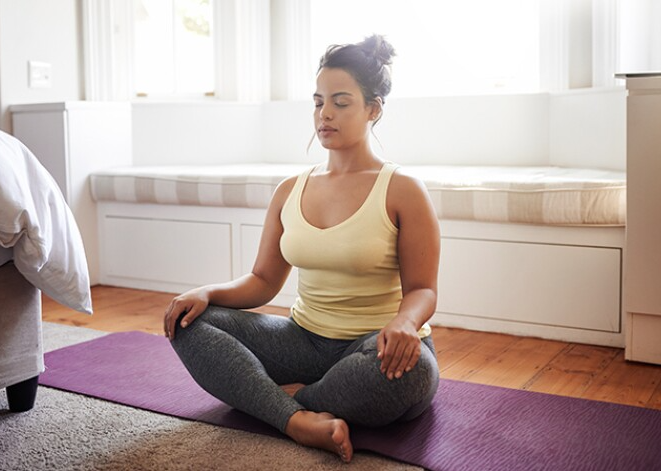The Ultimate Guide to Staying Fit and Healthy in Your 30s and Beyond
The Ultimate Guide to Staying Fit and Healthy in Your 30s and Beyond
Your 30s mark a powerful stage in life — a time when you may be building your career, starting a family, or finding your footing in the world. But while these years can be rewarding, they also come with new physical and mental health challenges. Metabolism slows down, energy levels fluctuate, and stress often increases. The good news? With the right habits and mindset, staying fit and healthy in your 30s and beyond is entirely achievable.
This ultimate guide covers essential tips to help you take charge of your health — naturally, sustainably, and effectively.
1. Embrace a Balanced, Sustainable Fitness Routine
In your 30s, your body no longer bounces back as quickly as it did in your 20s. That’s why it’s important to adopt a fitness routine that prioritizes consistency, strength, flexibility, and recovery.
Key Components:
- Strength Training (2–3 times/week): Helps preserve muscle mass, boosts metabolism, and supports bone health.
- Cardio (3–4 times/week): Improves heart health, stamina, and helps with weight management.
- Flexibility & Mobility: Incorporate stretching or yoga to prevent stiffness and injuries.
- Rest & Recovery: Overtraining can lead to burnout. Ensure rest days and quality sleep.
Tip: Choose activities you enjoy — dance, swimming, hiking, cycling — to make exercise feel less like a chore and more like a lifestyle.
2. Fuel Your Body with Nutrient-Dense Foods
What you eat plays a huge role in how you feel, perform, and age. In your 30s and beyond, it’s essential to eat foods that support your energy levels, hormones, metabolism, and immune system.
Smart Eating Habits:
- Prioritize Whole Foods: Think fruits, vegetables, lean proteins, whole grains, and healthy fats.
- Stay Hydrated: Drink at least 6–8 glasses of water a day to support digestion and detoxification.
- Mind Portion Sizes: Metabolism naturally slows with age; avoid overeating by listening to your hunger cues.
- Limit Sugar & Processed Foods: These can lead to inflammation, weight gain, and chronic disease.
Meal idea: Grilled salmon, quinoa, steamed broccoli, and avocado — a perfect blend of protein, fiber, and healthy fats.
3. Manage Stress Before It Manages You
By your 30s, responsibilities often multiply — career pressures, relationships, finances, and family life. Chronic stress not only drains your energy but also weakens your immune system and affects mental clarity.
Ways to Manage Stress:
- Practice Meditation or Deep Breathing: Even 5–10 minutes a day can calm the nervous system.
- Set Boundaries: Learn to say no and protect your time and energy.
- Engage in Hobbies: Creative outlets like painting, gardening, or music can bring joy and reduce stress.
- Stay Organized: Use planners or apps to manage tasks and reduce overwhelm.
Quote to remember: “You can’t pour from an empty cup — take care of yourself first.”
4. Prioritize Sleep Like It’s a Non-Negotiable
In your 30s, sleep quality becomes more important than ever. Poor sleep affects mood, memory, weight, and your body’s ability to repair and function.
Better Sleep Tips:
- Stick to a Sleep Schedule: Aim for 7–9 hours of sleep, going to bed and waking up at the same time daily.
- Create a Sleep-Friendly Environment: Keep your bedroom dark, quiet, and cool.
- Avoid Screens Before Bed: Blue light disrupts melatonin production, making it harder to fall asleep.
- Limit Caffeine Late in the Day: Switch to herbal tea or water after lunch.
Remember: Sleep isn’t a luxury — it’s a health foundation.
5. Watch Your Alcohol and Caffeine Intake
Your body’s tolerance for alcohol and caffeine shifts as you age. What once felt harmless might now disrupt your sleep, digestion, and mood.
Healthy Moderation Tips:
- Limit Alcohol: 1–2 drinks occasionally is generally safe, but daily intake can impair liver function and hormone balance.
- Monitor Caffeine: Stick to moderate levels (about 200–400 mg/day) and avoid after 2 PM to protect your sleep.
- Choose Healthier Alternatives: Try green tea, herbal infusions, or sparkling water with lemon.
6. Schedule Regular Health Screenings
Prevention is better than cure. Regular check-ups can catch issues early — especially as risks for certain conditions increase with age.
Screenings to Consider:
- Blood pressure and cholesterol
- Blood sugar and thyroid function
- Vitamin D and iron levels
- Pap smears, mammograms, or prostate exams (based on gender)
- Eye and dental exams
Tip: Don’t wait until something feels wrong. Annual check-ups can keep you on top of your health.
7. Strengthen Your Mental and Emotional Well-Being
Physical health is only one piece of the puzzle. Mental and emotional wellness are equally critical, especially when juggling work, family, and personal growth.
Ways to Nurture Mental Health:
- Journaling: Helps clear your mind and process emotions.
- Therapy or Counseling: Talking to a professional can offer clarity and coping tools.
- Positive Self-Talk: Replace negative inner dialogue with affirming thoughts.
- Connect with Supportive People: Strong social ties are linked to better mood and longevity.
8. Maintain a Healthy Weight — the Right Way
Fad diets and extreme weight loss measures can backfire, especially in your 30s. Focus on building healthy habits instead of chasing quick fixes.
Tips:
- Focus on fat loss, not just weight loss.
- Build muscle through resistance training.
- Eat enough to fuel your body — under-eating can slow metabolism.
- Track progress through how you feel, not just the scale.
Goal: Sustainable health, not short-term results.
9. Stay Consistent, Not Perfect
Perfection isn’t the goal — progress is. Life gets busy, and you might miss workouts or indulge now and then. What matters is getting back on track.
Maintain Momentum:
- Build routines around your lifestyle, not against it.
- Celebrate small wins — like choosing water over soda or taking the stairs.
- Be patient. Real change takes time.
10. Keep Learning and Adapting
Your 30s are just the beginning of your health journey. As your body changes, so should your approach. Stay open to learning, experimenting, and evolving your habits.
Ideas to Stay Inspired:
- Read books or follow podcasts about health and wellness.
- Try new forms of movement like Pilates, kickboxing, or trail running.
- Take courses or certifications in fitness, nutrition, or mindfulness.
Health is a lifelong journey — not a one-size-fits-all destination.
Final Thoughts
Staying fit and healthy in your 30s and beyond is entirely within your reach. It doesn’t require perfection, expensive programs, or impossible routines. It’s about building small, sustainable habits that support your body, mind, and spirit over time.
Start with what feels manageable — maybe it’s a daily 20-minute walk, switching to whole foods, or getting an extra hour of sleep. As these habits build, so will your strength, confidence, and energy.
Your 30s are not the beginning of decline — they’re the foundation for a vibrant, thriving future.










